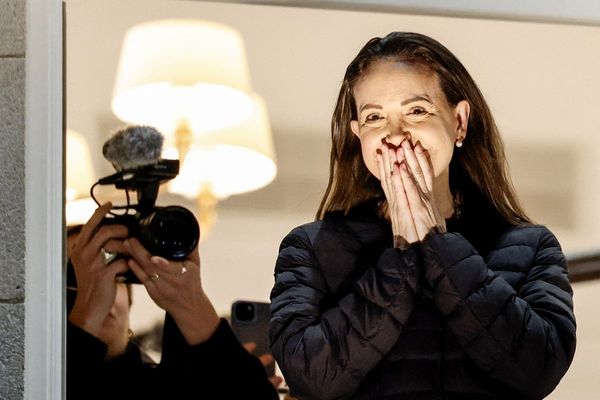
Last month, a courtroom watched a Queensland police officer break down in tears as she recalled meeting a desperate woman, Doreen Langham, in the days before her domestic violence killing.
The officer, whose identity was suppressed by the coroner’s court, said she believed police required more training. She would have done things differently.
“I wouldn’t have had so much reliance on her presentation to me, her demeanour,” the officer said.
“I would have asked more probing questions. Could she provide messages to me? Did she have any further evidence of anything … that she could offer me? Was there any previous history between the two?”
The deputy state coroner, Jane Bentley, is simultaneously investigating two separate domestic violence killings – Langham, and the deaths of Hannah Clarke and her three young children.
Since the inquest hearings, public discussion has ultimately turned to the adequacy of police training and how it could be improved, particularly to allow frontline officers to better recognise the signs of coercive control.
But there is an important subtext to that discussion that cannot be ignored. The idea that better training is a panacea is a convenient argument – one that is pushed most strongly by those who oppose a more serious examination of how police culture contributes to poor responses experienced by women seeking help.
It is important to understand the history here. Numerous inquests and hearings over the past decade have seen police commit to reform, to better educate officers and to review policies and procedures. But still these problems keep arising.
The inquest into the 2011 killings of Antony Way, Tania Simpson and her daughter Kyla, detailed how a police officer did not consider the killer’s prior controlling behaviour to be domestic violence. The coroner, Michael Barnes, found that “those charged with helping the family stay safe did not have processes that gathered the necessary information, nor the expertise to adequately interpret it”.
In 2o15, the inquest into the death of Indigenous woman Elsie Robertson recommended “a review of training packages available to police officers, with a view to assessing the appropriateness and frequency of compulsory professional development opportunities relevant to domestic and family violence”.
That same year the landmark Not Now, Not Ever report found that “training and specialised practice materials must be developed and made available to police and judicial officers, as well as frontline service delivery providers”.
The Queensland government’s response to the killings of Clarke and her children was to establish a women’s safety taskforce, chaired by the former court of appeal president, Margaret McMurdo. Its first task was to look at criminalising coercive control.
In doing so, the taskforce hit a complication. In an environment where police frequently misidentify victims and perpetrators – and where domestic violence cases now represent about 40% of all police jobs – creating a new non-physical offence risked amplifying, not solving, those problematic responses. This is of particular concern for Indigenous women and migrant women.
In handing down its report on how to criminalise coercive control, the McMurdo taskforce delivered a key recommendation: that Queensland hold a royal commission to “examine widespread cultural issues within the Queensland Police Service relating to the investigation of domestic and family violence”.
“A Queensland woman seeking police help to stay safe from a perpetrator enters a raffle – she may get excellent assistance, or she may be turned away,” the report says.
“Unfortunately, the taskforce has … heard that many police officers right across the state are not responding to women’s complaints of domestic violence and this is putting women’s safety at risk.”
Guardian Australia has consistently reported on the way police have failed women in Queensland.
In particular, we have followed the case of Julie*, whose address was accessed by an officer and leaked to her violent former partner.
Dani* privately prosecuted her former partner, who poured petrol on her, when police refused to bring charges. Lyla’s rape statement was placed in a shredder.
In pursuing these stories, our reporting has not been “anti-police”. It has been aided and encouraged by many serving and former officers; people who deeply understand the way these issues are shaped by cultural issues within the police service.
The Queensland government has yet to announce if it will fully implement the McMurdo report recommendations, which would mean holding a royal commission into police cultures, including examining whether to establish an independent law enforcement conduct commission.
Women’s groups, some former senior police officers and respected domestic violence researchers have all supported the need for an inquiry.
Senior police officers, and the influential police union, are strongly opposed. The union president, Ian Leavers, called the recommendation and the report “woke”. Leavers told the Clarke inquest last month that police lacked the proper training to deal with domestic violence incidents.
More effective police training is clearly needed. But it is not a silver bullet that will immediately reform police responses.
Nor is it an excuse for not finally listening to the voices of women, whose experiences have again and again demanded a proper inquiry, not another “patchwork” fix designed not to ruffle too many feathers.







